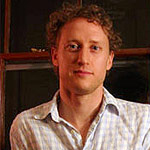
English
Experts and Encounters: Knowledge and Aesthetics After Wittgenstein
The goal of “Experts and Encounters” is to reflect on the question of whether or not scholars of literature and the arts have any kind of special expertise or knowledge (an ancient worry) and to draw upon the resources of Ordinary Language Philosophy to propose some provisional responses. The book’s first half focuses on the concept of “expertise,” and how certain contemporary scientific programs–Big Data, neuroscience, cognitive science–have had an impact on prominent strands of literary and cultural studies. Developing themes from Wittgenstein, Stanley Cavell, Iris Murdoch, Cora Diamond, and others, the second half of the book explores three underexamined dimensions of our engagements with artworks: the nature of attention, our capacity to trust (and distrust) works, and the prophetic qualities that artworks frequently possess. These terms help me spell out what I mean in my title by “encounters”: the sense of risk and vulnerability that pervades our experience of artworks, no matter how much information we might have, and the unsettling sense that my engagements with works are always irreducibly mine–that I (my beliefs, commitments, habits, assumptions) are to some extent always on the line whenever I perceive and evaluate a work.